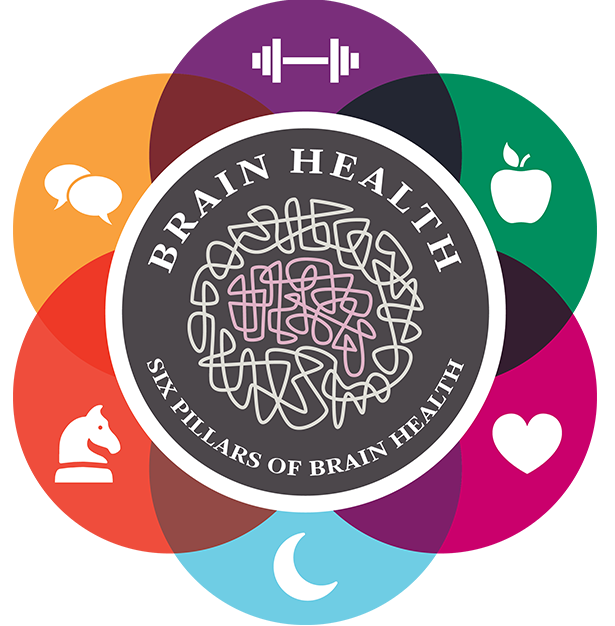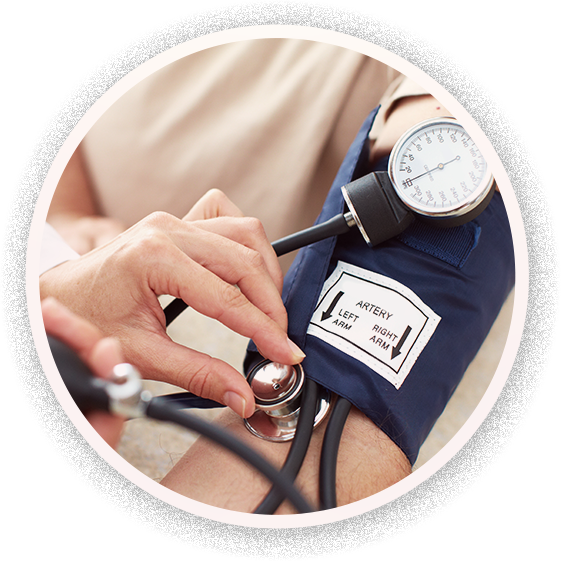Pillars of Brain Health
Lifestyle has a profound impact on your brain health. What you eat and drink, how much you exercise, how well you sleep, the way you socialize, and how you manage stress are all critically important to your brain health.

The Cleveland Clinic Six Pillars of Brain Health will help you navigate your journey to brain health. Read on.
Physical Exercise
YOUR BODY: GET MOVING. People who exercise regularly have a lower risk of developing Alzheimer’s disease. Exercise improves blood flow and memory; it stimulates chemical changes in the brain that enhance learning, mood and thinking. Be fit. Be smart.
Food & Nutrition
EAT SMART, THINK BETTER. You are what you eat. As you grow older, your brain is exposed to more harmful stress due to lifestyle and environmental factors, resulting in a process called oxidation, which damages brain cells. Rust on the handlebars of a bike or a partially eaten apple gives you an idea of the kind of damage oxidation can cause to your brain. Food rich in antioxidants can help fend off the harmful effects of oxidation in your brain.
Medical Health
CONTROL MEDICAL RISKS. Hypertension, diabetes, obesity, depression, head trauma, higher cholesterol, and smoking all increase the risk of dementia. You can control and reduce these risks. Get your annual check-up, follow your doctor’s recommendations and take medications as prescribed. Get engaged in a brain healthy lifestyle for your body and your mind.
Get your Brain Health score today!
LET'S BEGINSleep & Relaxation
REST WELL. Sleep energizes you, improves your mood and your immune system, and may reduce buildup in the brain of an abnormal protein called beta-amyloid plaque, which is associated with Alzheimer’s disease. Practicing meditation and managing stress may help fend off age-related decline in brain health. Stay positive. Be happy.
Mental Fitness
YOUR MIND: USE IT OR LOSE IT. Mental exercise is just as critical as physical exercise in keeping your brain fit and healthy. Mental exercises may improve your brain’s functioning and promote new brain cell growth, decreasing your likelihood of developing dementia. Like your muscles, you have to use your brain or you lose it.
Social Interaction
STAY CONNECTED. Leading an active social life can protect you against memory loss. Spending time with others, engaging in stimulating conversation, and staying in touch and connected with family and friends are good for your brain health. Studies have shown that those with the most social interaction in their community experience the slowest rate of memory decline.







